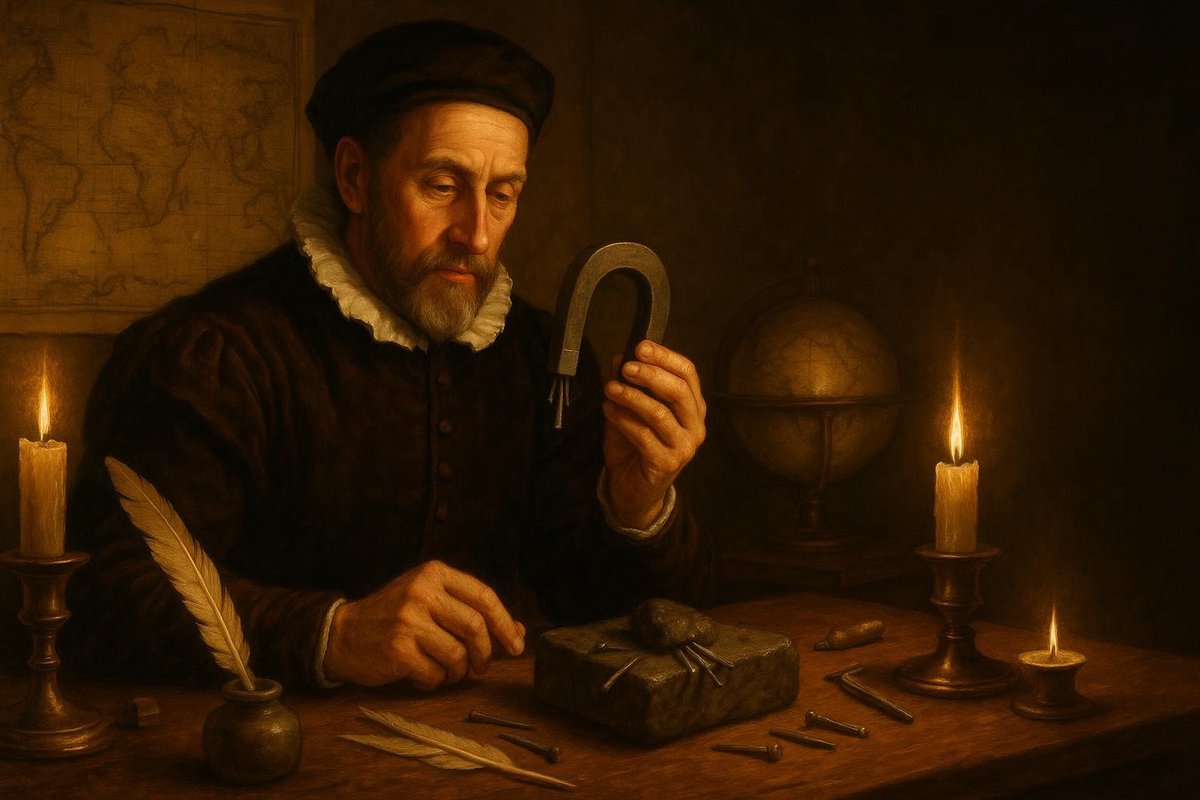
Hypothesis & Context: Setting the Stage for Discovery
Imagine living in a world where the mysterious pull of a lodestone could lead you to uncharted territories. Indeed, magnetism has been a captivating phenomenon for centuries. But how did we come to understand this invisible force?
Before magnets as we know them today, ancient civilizations, like the Greeks, encountered naturally occurring magnetic stones, or lodestones. These curious objects could attract iron and were a source of wonder and speculation. Many people believed they held magical properties. Of course, such ideas needed a more scientific explanation.
- Greeks observed lodestones attracting iron.
- Chinese inventors used magnetism for navigation.
- Scientific curiosity grew during the Renaissance.
The stage was set for the scientific revolution. Scholars, driven by curiosity and the spirit of inquiry, sought to understand these forces. It was only a matter of time before someone unraveled their secrets.
Setup & Method: The Experiments That Changed Everything
Fast forward to the late 16th century. Enter William Gilbert, an English physician and natural philosopher who turned his attention to the mysteries of magnetism. His experiments would lay the groundwork for our modern understanding.
Gilbert’s methodical experiments involved examining the properties of lodestones and their interactions with various metals. He discovered that the Earth itself behaved like a giant magnet, a revolutionary idea at the time.
- Gilbert used lodestones and metallic objects.
- He observed Earth’s magnetic properties.
- His findings challenged existing beliefs.
Gilbert’s work was both meticulous and groundbreaking. He recorded his findings in “De Magnete,” a comprehensive study that effectively challenged centuries-old theories and sparked new lines of inquiry.
Results & Reactions: A New Understanding Emerges
William Gilbert’s discoveries were met with intrigue and skepticism. His assertion that the Earth itself was a magnet turned the academic world on its head.
The reaction to his findings was mixed. While some lauded his groundbreaking work, others resisted, clinging to older beliefs. No wonder humans are often resistant to change!
- Gilbert’s findings were controversial yet praised.
- His work inspired future scientists like Galileo.
- Debates about magnetism expanded globally.
Despite initial resistance, Gilbert’s ideas gained traction. His research inspired future scientists to explore magnetism further, leading to innovations in navigation and electrical engineering.
Implications: Why Magnetism Matters to Us Today
So why does the discovery of magnetism matter? Imagine a world without compasses to guide explorers or MRI machines to scan the human body. Indeed, the implications of understanding magnetism are vast.
Today, magnetism plays a crucial role in multiple fields: from guiding ships and airplanes to powering modern technology. The work of early scientists laid the foundation for understanding electrical currents and, eventually, developing the technology that powers our modern world.
- Magnetic fields are crucial in technology today.
- Medical devices rely on magnetic principles.
- Understanding magnetism revolutionized navigation.
As time goes on, the legacy of Gilbert and his contemporaries continues to influence science and technology. Their inquiries into the natural world have changed the course of history and our understanding of the universe.
In conclusion, the discovery of magnetism is a testament to human curiosity and the relentless pursuit of knowledge. It opened doors to understanding invisible forces that shape our world, proving that sometimes, the most profound discoveries come from asking the simplest questions.
Fuel Someone Else’s Curiosity
Inspired by the fascinating journey of magnetism? Share this article with a friend or fellow explorer of science. Encourage them to see the world through the lens of curiosity and discovery. After all, every new insight can lead to a chain of wonders!

Leave a Reply